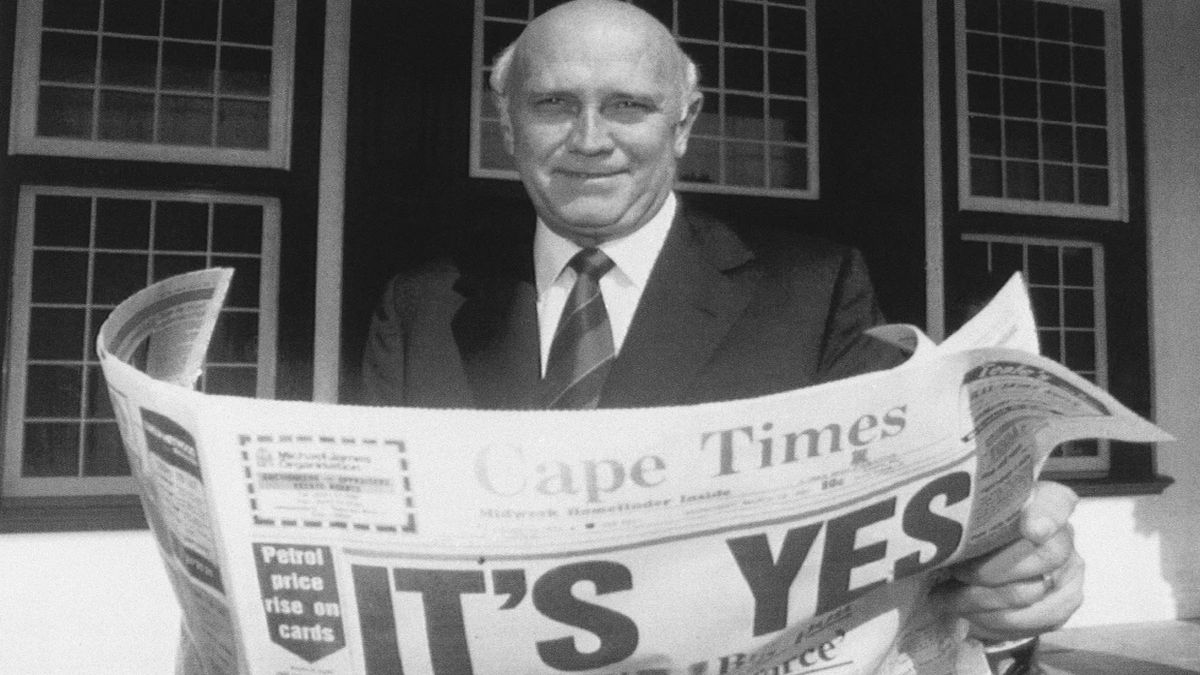On March 17, 1992, white South Africans voted in a national referendum to end over 40 years of apartheid. This marked the end of a turbulent era of racial segregation that had imposed strict restrictions on Black citizens while privileging the white minority.
Are you interested in reading about important moments from the past? If you have a deep interest in past events, Firstpost Explainers presents **History Today** , an ongoing series exploring key developments that have shaped the world.
On this day in 1762, the first-ever St. Patrick’s Day parade took place in New York. It featured a procession of homesick Irish immigrants and Irish soldiers serving in the British Army stationed in the American colonies.
Let’s take a look at these events:
Apartheid comes to an end in South Africa
On March 17, 1992, white South Africans voted in a referendum to end minority rule, with 68.7 per cent supporting the decision and 31.2 per cent opposing it. This marked the end of apartheid .
Before 1948, racial segregation was already a part of South African society. However, when the white-ruled National Party, led by Daniel F Malan, came to power that year, it expanded these policies and officially named them apartheid.
Apartheid led to years of violence, economic struggles, and international sanctions against South Africa.
One of the laws that enforced apartheid was the Group Areas Act of 1950. It divided cities into different areas for each race, banning people from other racial groups from living, working, or owning property there. This law forced thousands of people to leave their homes.
Impact Shorts
More ShortsOther laws strengthened apartheid further. The Prohibition of Mixed Marriages Act (1949) and the Immorality Amendment Act (1950) made it illegal for people of different races to marry or have relationships.
Over time, Black South Africans, with support from some white allies, protested, went on strike, and resisted the apartheid system.
International and domestic pressure eventually forced the government to end apartheid, leading to the 1992 vote.
Two years later, in 1994, **South Africa** held its first election open to all races. Nelson Mandela, who had spent 27 years in prison for fighting apartheid, became the country’s first Black president.
New York’s first St. Patrick’s Day parade
In 1762, New York hosted its first-ever St. Patrick’s Day parade.
Saint Patrick, born in the late 4th century, is regarded as one of history’s most influential Christian missionaries. He was born in Britain to a Roman Christian family but was kidnapped at 16 by Irish raiders who attacked his home.
Taken to Ireland, he spent six years in captivity before escaping back to Britain. Convinced that he had a divine calling to spread Christianity in Ireland, he joined the Catholic Church and studied for 15 years before being ordained as the second missionary to Ireland.
Patrick arrived in Ireland in 432, and by the time of his death in 461, the country was almost entirely Christian.
Irish settlers in the American colonies, many of whom were indentured servants, brought the tradition of celebrating St. Patrick’s feast day to America.
The first recorded **St. Patrick’s Day** parade in New York City took place in 1762. With the surge of Irish immigrants to the United States in the mid-19th century, March 17 became widely celebrated.
Over time, the parades became a symbol of unity and resilience for Irish-American immigrants facing discrimination and later evolved into a broader celebration of Irish heritage.
In 1995, the Irish government launched a major campaign to promote St. Patrick’s Day as a way to attract tourists and promote Ireland’s culture on a global stage.
Today, March 17 is celebrated worldwide, with millions wearing green, holding parades, and raising a glass to celebrate the spirit of the Irish.
This Day, That Year
1930: Construction of the Empire State Building, the world’s first skyscraper with over 100 floors, began on 5th Avenue in New York City.
1958: Vanguard 1, the first solar-powered satellite, was launched from Florida. Weighing less than four pounds, it stopped transmitting in 1964.
1962: Indian-American astronaut Kalpana Chawla, the first Indian woman in space, was born. She later died in the Space Shuttle ‘Columbia’ disaster.
1969: Golda Meir was elected as Israel’s first female prime minister. She became the country’s fourth prime minister and remains the only woman to have held the position.
1987: Cricket legend Sunil Gavaskar ended his Test career with an innings of 96 against Pakistan.
1990: Indian badminton star Saina Nehwal, one of the top women’s players with multiple championship wins, is born.
2019: Facebook removed 1.5 million videos of the Christchurch mosque shootings in New Zealand within 24 hours of the attack.
2023: The International Criminal Court issued an arrest warrant for Russian President Vladimir Putin for alleged war crimes related to the abduction of children from Ukraine.


)

)
)
)
)
)
)
)
)



